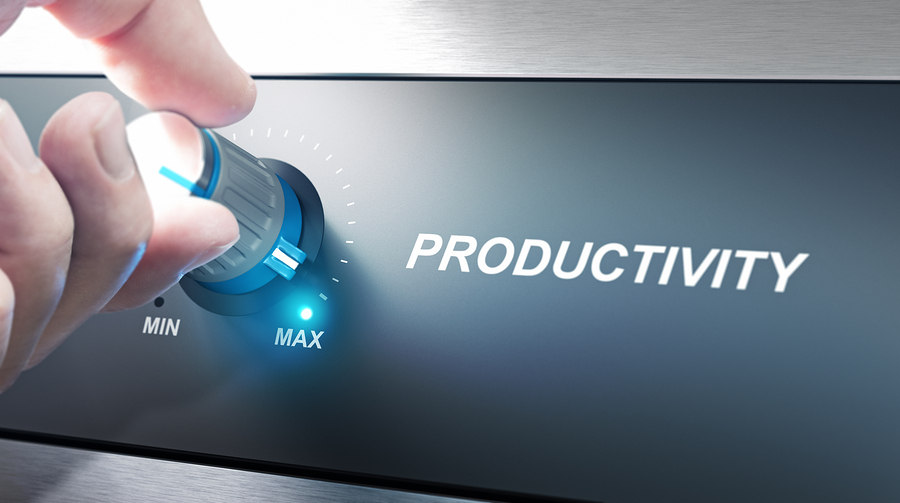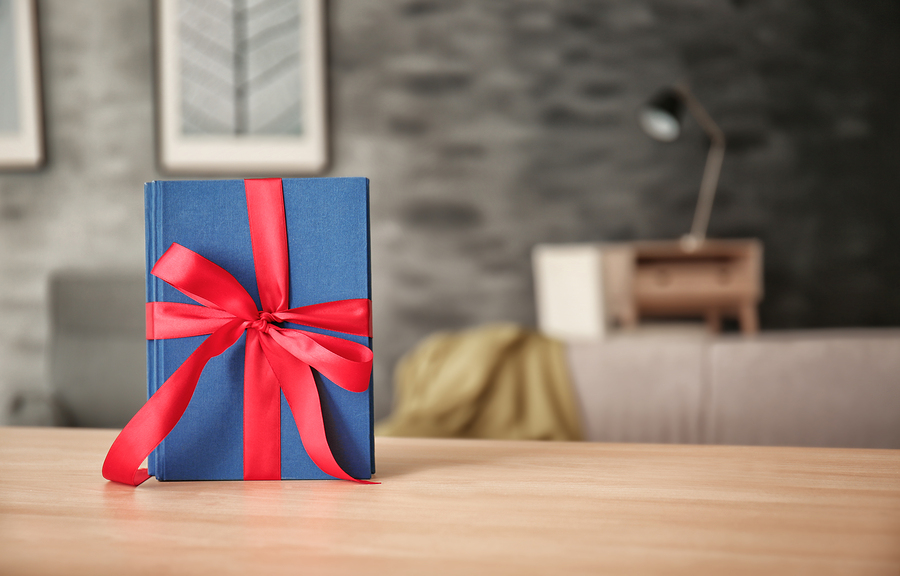I’ve met fifty book deadlines, never missing one (though I have renegotiated a few), and many more article deadlines. These days, as a writer, editor, and agent, I have even more tasks, schedules, and details to juggle than ever before. Happily, I’ve installed a handful of productivity practices that aid my feeble mind and fragile memory. Here are six that I find the most helpful:
- Working ahead
The more tasks I take on, the more I fear painting myself into a corner, so to speak, and finding myself in a place where I won’t have the time or the ability to meet a deadline or respond to an opportunity. So, I make every effort to “front-load” tasks, to buy me the breathing room to relax and be creative when I need to be. For example, if I sign a contract to write a 1,500-word article that is due in two weeks, I might divide it into incremental steps (“first draft,” “second draft,” “edit,” “proofread,” “send,” etc.) and place those tasks on my to-do list for the first week. That way, if an emergency or distraction arises, I still have a week before my deadline to make whatever adjustments I need to make.
Similarly, I try to write two or three blog posts ahead of schedule on the four blogs I contribute to, so that I’m never sweating a last-minute deadline. I do the same sort of thing when I sign a book contract or agree to a speaking engagement.
- Automated alarms and reminders
Remember Day-Timers? They combined your address book, calendar, to-do list, and more into one notebook. I wore mine out every year. Nowadays, however, I use the calendar, to-do list, alarms, and reminders on my computer and smartphone to keep me on task and prevent me from forgetting something important.
It takes an extra five seconds or so, when I add a calendar event, to include an alert. But once I do, I can relax and “forget” about it until the alert chimes. I use such alerts and notifications for more than appointments; I program reminders for chores, bills, book releases, and prayer, among other things.
- A “bring-up” file
One of my most effective office organization tools is what I call a “bring-up” file, also called a “tickler file” by some time management folks. It is a simple but helpful collection of forty-three file folders. Twelve are labeled with the months of the year, and the other thirty-one are numbered, 1-31, for the maximum days in a month. When a bill comes in the mail, I open it, note the due date, and then put it in the “bring-up” for seven days before it’s due. That way I never miss a payment. If there is something–like a birthday or an estimated tax payment–I want to remember three months from now, I may record in my desktop calendar…but I will also put the note, card, or payment voucher in that month’s folder. If I have a restaurant coupon to use on my next “date night” with my wife, I’ll simply put the coupon in that date’s “bring-up” folder. Articles to be read, maps and reservation forms for upcoming trips, reminders of goals I want to meet, seasonal reminders (like when to order mulch or change furnace filters), etc. all go in the “bring-up.” Best of all, perhaps, at the end of a workday, I simply take all the papers and forms from my desk and put them in the next workday’s folder.
The hardest thing about installing a “bring-up” file in your routine is not setting up but getting into the habit, every morning, of pulling out that day’s folder. Once you get into the habit, however, it clears your desk and your mind of so much worry and clutter.
- Siri
I realize that not everyone is fortunate enough to have an iPhone, but it certainly is a helpful tool, especially since Siri was introduced in 2010. Did you know that if an iPhone is plugged in, it will respond to a spoken, “Hey, Siri?” Siri helps me look up definitions, synonyms, historical dates, and more, while I’m writing. He (in my phone it’s a “him”) calls the local library research desk for me. He schedules reminders for me. And I not only ask Siri for directions to and from unfamiliar places, but I let him guide me to places I know well, because it has often saved me from detours or traffic jams.
- Email rules and folders
Your email program probably allows you to automate certain kinds of emails you receive. For example, you can tell it to always (or never) send mail from a particular address to your spam folder or trash. You can program certain senders or subjects to go into a folder. You can tell your email program to auto-forward them to someone else, and so on. If you are regularly processing emails from a certain source or on a certain subject, this can be a big time-saver.
I also have hundreds of folders in my email program; once an email in my inbox has been processed, I move it into a folder, which keeps my inbox crisp and clean. That practice alone saves me time scrolling through the inbox; I can always tell at a glance what emails I still have to manage.
- Evernote, Pinterest, Hootsuite, and Buffer
Some of my friends (okay, both of them) suspect that I am online constantly, tweeting, Facebooking, etc. But I’m not. I use Hootsuite and Buffer to schedule tweets for my Twitter accounts (@bobhoss, @bardandbible), days and even months ahead of time. I use Evernote and Pinterest to “clip” articles, graphics, ideas, etc., that I want to have on file for later. And I write most of my blog posts ahead of time and schedule them within the blogging platform (and I’ve pre-programmed my blogs to feed Twitter and one of my Twitter feeds to go automatically to a Facebook). Once set up, those tools help me to plan and write ahead, so I can relax and let the tool do the rest. It’s not quite Rosie the Robot (from the Jetsons) but it’s the next best thing.



 Books are Not Mass Media
Books are Not Mass Media

Thank you so much for sharing. I can see how these practices would help.
Thank you for the comment, CJ. If I can make them work, anyone can!
Bob,
Fantastic insights here in this article. Great tools and the working ahead hint is one many writers forget about doing. Deadlines are great but they are also a delight to beat.
Terry
Yes, Terry, exactly.
Enthusiastically agree on Siri. Used “her” just this morning to record a Note for me on something I would not (but needed to) remember later.
I am intrigued by the “bring up file.” That is a new one on me. so, each month, you move the 31 daily folders to the next monthly folder? Is part of that routine that you pull items out of the next month’s folder and distribute them to appropriate days in the upcoming month?
Sort of, Damon. Take this morning. I pulled the folder #30 that is at the very front of my desk drawer. I emptied its contents onto my desk, and then returned it to the drawer, only BEHIND the #29 (and 1-28), which is now behind the SEPTEMBER folder. So each day I move just one folder, except on the first of each month. So on Friday (Sept. 1) I will pull two folders out, the September folder (in which is all the stuff I wanted to remember for that whole month) and the #1 folder. The things in the September folder I then divvy up into the numbered folders (some I have already marked with the date I need to bring it to mind). And then the empty September folder goes behind all the folders, and the #1 folder will go behind the October folder, which then waits behind #2-31 (though I know September only has 30 days, #31 will just sit empty in order until its needed the next month). Does that make sense? It is more complicated to explain than it is to use.
You’re invaluable, Bob. I’m thankful your tips come straight to my email, no filing required.
I don’t know that I’ve ever been called “invaluable” before. Other names, yes, but not that one. Thank you.
Great list, Bob. I’m sure this will be pinned up on many refrigerator doors, or wherever the eureka-place of the modern world might be.
One further suggestion, if I may – do the unpleasant stuff as early in the process as possible. It’s like a workout; if there is an exercise that is needed but truly horrible, getting it done early will make the rest of the session seem to fly by.
I guess that for me, productivity increased when I realized that my main obligation was not the placing of words on paper, but the placing of the flowers of kindness into the hearts around me.
Yes, Andrew, thanks for that. I try to do that myself. Though I admit sometimes I still procrastinate the most odious duties.
Thanks, Rebekah. Try programming a reminder in your phone to make a “bring-up” file system so you can put reminders in your “bring-up” to break these ideas into incremental steps to implement. Easy peasy.
Dear Bob Hostetler
A Writer’s Top 6 Productivity Practices was a pleasant read!
I love that you allow us the readers to tap into your experience regarding writing and publishing.
The productivity practices you’ve mentioned in this blog post will help those who take the time to read your blog post.
The suggestion of breaking tasks into smaller steps from your ‘Working ahead’ is one of the most powerful tips I tried. I’ve used it for a few years now, and as you say, it gives us the breathing room that we need.
Regarding number 2. Automated alarms and reminders I’ve found Google’s calendar helpful. I plot everything I need to do/remember in there. I also use a theme for each day so that I know where my focus is/should be during the day.
It has also given me more flexibility because I can just move ‘whole’ days if it suits me better.
As you say, we can relax once we’ve added an event to the calendar and use our brainpower for more important activities.
The bring-up file sounds like a good idea although I’ve not used it yet.
When it comes to Siri, I agree with you that those of us who are fortunate enough to have an apple product can take advantage of this tool.
I use Siri to take notes and sometimes also when I’m dictation blogs.
I love email rules because they are real time savers.
I’ve found Gmail to be useful and easy to use when it comes to set up rules.
Regarding point 6. Evernote, Pinterest, Hootsuite, and Buffer they are useful as well. As you do, I also use Hootsuite to schedule Tweets and social messages.
I’m careful to avoid going overboard with automation since I like to be in control of what’s going on.
I appreciated this blog post and will share it on my social media accounts Tuesday, September 12.
With respect,
Edna Davidsen
Thank you, Edna. For someone like me with obsessive-compulsive tendencies, a little overboard can be a good thing, as it lets me relax and FEEL like I’m in control, even if I’m not, really. 🙂
I know the feeling 🙂
Practical productivity. Thank you, Bob.
Thank you, as always, for the comment, Sharon.
Great ideas, Bob. Thanks!
These are probably obvious, but perhaps bear a quick repeat:
1) Eat healthy, and avoid comfort foods and an excess of coffee. Comfort foods are comforting because they inspire a relaxed loss of focus, and coffee, overdone, sets up an antagonistic dynamic in the body.
2) Keep the most regular sleep schedule you can. Don’t place roadblocks of fatigue during prime writing hours in your own path.
3) Exercise, and remove bum from chair regularly.
4) Smoke cigars; they will make you feel like Hemingway.
Good points, Andrew (except for the cigar thing; not for me). #3 reminds me that I find a standing desk helpful for writing, alternating with my desktop. Switching back and forth keeps me moving but also allows me two distinct “modes” of focus (the chair/desktop is better for thinking, outlining, etc., while the MacBook/standing desk is better when I just need to pound out words).
A “bring-up” file – what a great idea! How do you find the physical filing/reminder system working for you when travel calls, Bob? Just curious how you handle it.
As for Siri, I must be doing something wrong, because she and I embrace a “love/hate” at best. Perhaps it’s operator error, although my pride would love to shield against that notion!
Thanks for yet another helpful post.
Great question. Before leaving for a trip, I pull ALL folders for the duration of the trip and either deal with each item, refile it for when I return, or take it with me.
And Siri irritates me at times, too, but the more I use it the better it gets. I think both Siri and I are getting smarter.
So let me get this right. Using a looming deadline and the resultant panic as the impetus to actually start writing is a bad idea?
No wonder my Tums budget is so high. I’ve been doing it wrong for 30 years.
Well, Jay, your system seems to be working just fine for you. 🙂
I haven’t heard Rosie the Robot mentioned in decades. Thanks for the morning smile, Bob.
I’m putting everything I need to keep track of in my Google calendar, though if my bills and such all came to me in paper envelopes I could see how your “bring up” file system would work well for me. With Google cal it’s so easy to slide tasks around from hour to hour or one day to the next. Like everything you’ve mentioned, though, my system requires constant tweaking – which can distract me from actually getting things done.
The most helpful takeaway in your post is scheduling a project in increments. I need to be better about doing that. Thanks!
Good to know SOMEONE gets my Jetsons references.
Hi Bob, your behind the scenes secrets to success are so helpful. I have a serious appointment with some manilla folders this evening!
A convert! Hallelujah!
Bob, thanks for a great posting. You are a person after my own heart, though I use an old-fashioned calendar that tells me which week my classes are in at the three colleges where I teach and an equally old-fashioned memo pad that lets me check off tasks as they are completed.
Paper. So old school. But it still works, doesn’t it?
Hi Bob, thanks so much for those great insights. I need to set up a “Bring Up” file. Half the time it just looks like my desk threw up! I have also been using the Pomodoro Method..except my timer is actually a chicken so I guess it is the Pollo Method ..and that has helped me budget time per projects. I still make lists, usually right before I go to bed so when I wake up my day is already mapped out.
Pomodoro just makes me hungry. It sounds like an Italian restaurant.
Thanks for the tips. Is there a way of pinning an article to Pinterest if the article doesn’t have a Pinterest button on it? Like this one – LOL
Hi Bob – This is a PS to my last message. I’ve worked out how to pin a post by adding the Pinterest button on the Chrome browser. But thank you for the tip or I wouldn’t have thought to do that. Cheers
Nola